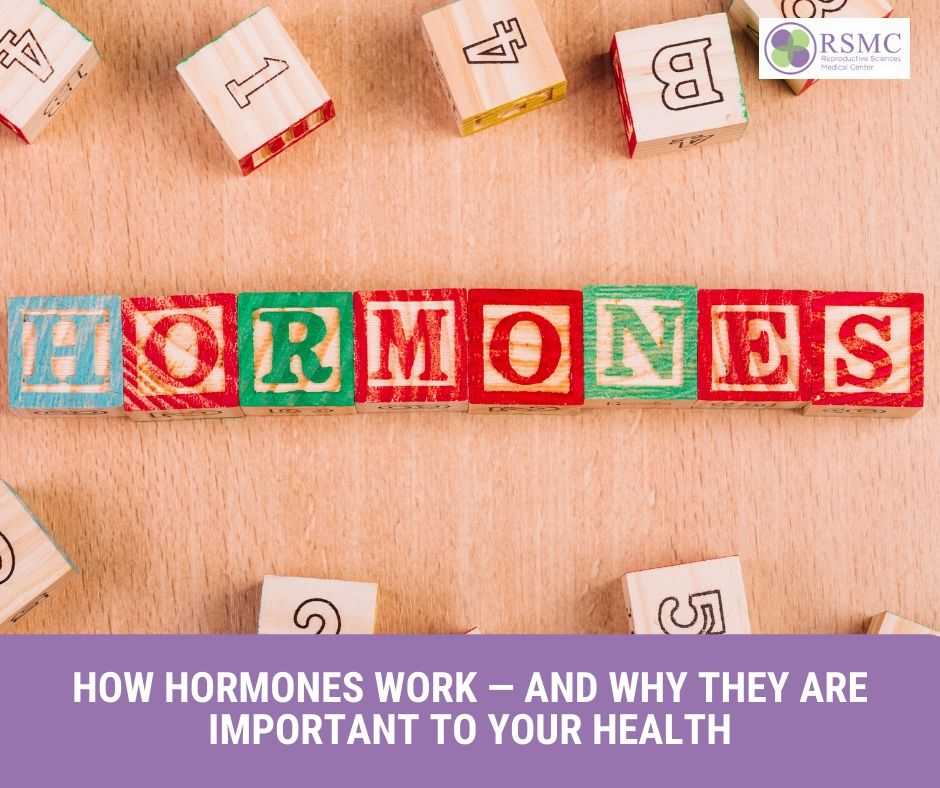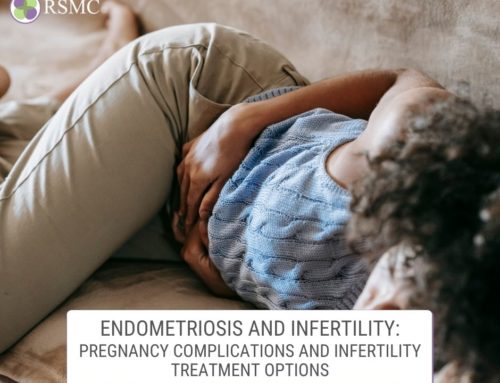What exactly are hormones? Where do these substances come from? What effects do hormones have on our bodies and reproductive health? Does everyone have them? This comprehensive article will cover all of these topics regarding hormones and their impact on various physiological processes, including fertility health. Let’s begin.
What are Hormones?
The human cells communicate with one another using chemical “messengers.” The type of messengers used by the cells depends on the system. The immune system uses things known as cytokines. Whereas, the brain and spinal cord (central nervous system) are powered by neurotransmitters. The endocrine system uses what we call hormones.
Do you still remember the popular children’s game, “Chinese Whispers” or “Telephone?” You whisper some things to the person beside you, who then passes the message to the next person. The chain repeats until the last person in-line receives the message (which usually differs from what you originally said). Consider the messengers in the brain and spinal cord as working like an unending game of “Telephone.” They attach to a cell to bring about some kind of change. The cell then transfers the message to a neighboring cell, and on and on.
Hormones work differently. Hormone-based communication would be as if you were using a megaphone to pass a message across. Instead of transmitting the message from one person to another, everyone gets the message at the same time. Once the endocrine glands release them into the bloodstream, hormones journey throughout the body, acting on cells with receptors for them.
Where do Hormones come from?
Different glands in the body release different hormones. The Adrenal gland releases hormones, such as cortisol, which regulates glucose and physiological stress responses. The Thyroid gland releases thyroxine (T4), a hormone that regulates cellular metabolism. The gonads (testes and ovaries) release reproductive hormones like testosterone and estradiol, which control ovulation and ovarian function. However, in all these cases, there is a chain of events that begins from the brain.
How do Hormones work?
Our cells have receptors that can be internal (inside the cell) or external (on the surface of the cell). These receptors serve as a lock, while hormones serve as the key. When the two meet, that is when the “magic” occurs. Depending on the type of cell involved, the two main things that can happen are:
- The hormones go into the nucleus of the cell, where the genes are located. There, they influence which genes become expressed. As a result, they affect which proteins are formed. It eventually affects a lot of biological processes in the body.
- Instead of journeying into nucleus land, the hormone that is attaching to the receptor alters the activity of the cell. It is through this particular process that hormones affect physiological behavior, cognition, and functions.
Do we all have the same Hormones?
All humans have the same hormones. As a matter of fact, many distantly related species also have the same types of hormones. For example, Insulin is a peptide hormone that helps to utilize and store sugar. Many bacteria produce the exact same Insulin that humans produce. It means that if you take Insulin from bacteria and put it in a human, it will perform what it usually does. It also goes for some other hormones, e.g., estrogen, which is the same in horses and humans.
(Quick fun fact: Premarin, the post-menopausal estrogen-replacement drug, is actually made from estrogen gotten from pregnant mare’s urine.)
Although humans have the same hormones, the level of each hormone an individual has depends on their age and sex. It is common knowledge that males and females across species have different levels of reproductive hormones. For instance, the levels of testosterone in adult men are ten times more than that of women. Whereas, women have higher estradiol levels compared to men.
Do Hormones change over time?
The Anti-Mullerian hormone is one of the reproductive hormones that change across your lifetime. Some hormones, such as LH, FSH, and even others that have nothing to do with fertility health (cortisol), can change within a day or over a reproductive cycle.
Hormones can also fluctuate over longer periods of time. In the beginning stage of prenatal development, the biological “axis” that regulates the development of fertility hormones is very active. The production of reproductive hormones is also very high a few months after delivery. It is so high that this period is known as “mini-puberty” since babies are producing puberty-like levels of reproductive hormones at this stage.
A while after that, things begin to calm down. The production of fertility hormones reduces in the first few months after delivery until puberty when it peaks again. It means that a 4-year old boy and a 4-year girl will have the same levels of reproductive hormones until adolescence when the production of reproductive hormones increases.
Fertility hormones, such as testosterone, FSH, LH, and estradiol, stay consistent across a woman’s reproductive lifespan. The only exception to this is the Anti-Mullerian hormone, which decreases.
Things change significantly after menopause. The woman no longer has growing follicles that produce testosterone and estradiol. Estradiol informs the brain to relax the production of FSH and LH. Thus, levels of these hormones increase after menopause.
What do Hormones actually do?
Almost every process in the human body involves hormones. They regulate the blood sugar level, cause uterine contractions during labor, and make you feel satiated or hungry. Hormones also have an involvement in the circadian rhythm. They are responsible for the fight-or-flight response you may get when in a stressful situation.
Reproductive Hormones
Now, let us focus more on what fertility hormones do. These hormones modulate the development of the reproductive structures before birth and are super important for fertility in the future. One cool thing about reproductive hormones is that they guide our brain and entire bodies towards the same fertility-related goals.
Hormones fluctuate across a woman’s menstrual cycle, and it lets us know when a female patient is ovulating. The levels of estradiol increase as ovulation draws near. Recent studies have found that estradiol is responsible for sexual desire in women. So, sexual desire increases as the estradiol levels go up. If you put these two facts together, you will realize that the same hormone (estradiol) that tells our bodies that it is possible to become pregnant, is also the one that gets us in the mood.
Here’s another example. Although prolactin is more known for its role in promoting milk production in breastfeeding women, it has another function. According to recent research, this hormone is also important in creating that special mother-infant bond. It means that the same hormone (prolactin) that helps produce the baby’s food also helps the mother to become attached to her newborn and make her want to care for the baby. Additionally, prolactin prevents ovulation during breastfeeding. Thus, it shut down the ability of the nursing mum to conceive again, probably so that she can put all her efforts on the baby.
How to know if your hormone levels are “normal” or if you have a Hormonal imbalance
Hormone imbalances have been linked to many well-known medical conditions. One example is diabetes, which is characterized by the inability of the body to produce or respond to Insulin. Another example is polycystic ovarian syndrome (PCOS), a medical condition affecting 10% of American women. PCOS is characterized by an increase in the levels of male hormones (androgens) and AMH. There are also health conditions that have connections with the under- and overproduction of thyroid hormones. Fortunately, all of these conditions are treatable. If you think something is going on, consult your doctor to examine your hormone levels.
The Bottom line
Hormones play a very crucial role in many physiological processes of our body and health. Measuring them can let us know when things are functioning as they should. They can also coordinate reproductive behavior, physiology, and psychology towards a single goal.
All in all, hormones are an essential element of everything we do here at the RSMC fertility clinic, San Diego. Do you have any questions about hormones and how they can affect your health and ability to conceive? Interested in seeing how we could help? Please feel free to call us at (858) 436-7186. You can also visit our website at www.fertile.com, where you can schedule a consultation that is also available via phone. Our consultation currently includes an ultrasound.























